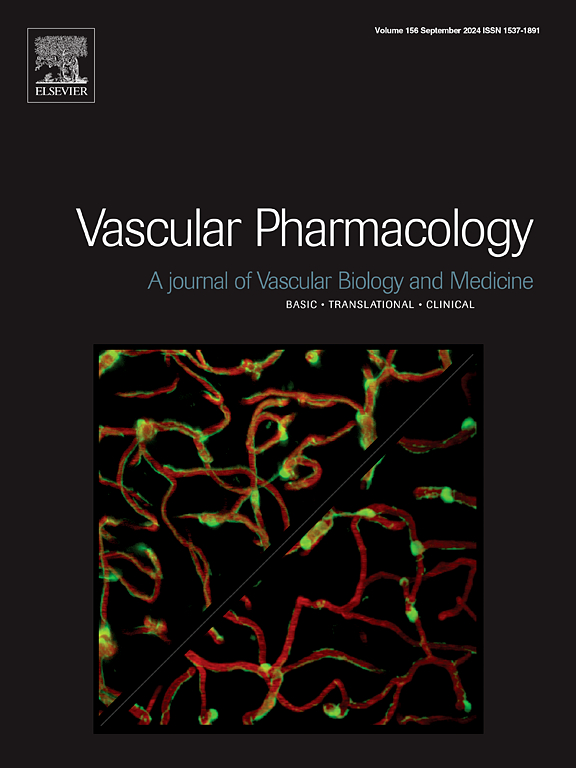‘Emerging cell-specific therapies in cardiovascular disease’
IF 3.5
3区 医学
Q2 PHARMACOLOGY & PHARMACY
引用次数: 0
Abstract
Atherosclerosis is a leading cause of cardiovascular morbidity and mortality worldwide, driven by complex interactions among various plaque cell types, including endothelial cells, macrophages, and smooth muscle cells. Traditional therapies targeting systemic risk factors such as cholesterol and blood pressure fail to directly address the underlying mechanisms governing plaque formation and progression. Recent advances in cell-specific therapies offer new avenues for targeting the cellular and molecular processes driving atherosclerosis. This Review explores innovative strategies including nanoparticles, viral vectors and CRISPR-Cas9 technology, which have the potential to modulate gene expression and behaviour within plaques cells to alleviate disease. By focusing on the specific roles of key cell types in atherosclerosis, these emerging therapies promise to provide more precise, effective, and personalised treatment options without inducing off-target effects. Moreover, insights gained from successful applications of these technologies in oncology are considered for potential repurposing in atherosclerosis-related disease. As these cell-specific approaches advance through preclinical and clinical development, they may significantly enhance our ability to treat atherosclerosis at its cellular roots, offering new hope for reducing the burden of cardiovascular disease.
新出现的心血管疾病细胞特异性疗法
动脉粥样硬化是世界范围内心血管疾病发病率和死亡率的主要原因,由各种斑块细胞类型(包括内皮细胞、巨噬细胞和平滑肌细胞)之间复杂的相互作用驱动。针对系统性危险因素(如胆固醇和血压)的传统疗法不能直接解决控制斑块形成和进展的潜在机制。细胞特异性治疗的最新进展为靶向驱动动脉粥样硬化的细胞和分子过程提供了新的途径。本综述探讨了包括纳米颗粒、病毒载体和CRISPR-Cas9技术在内的创新策略,这些策略有可能调节斑块细胞内的基因表达和行为以减轻疾病。通过关注关键细胞类型在动脉粥样硬化中的特定作用,这些新兴疗法有望提供更精确、有效和个性化的治疗选择,而不会引起脱靶效应。此外,从这些技术在肿瘤学中的成功应用中获得的见解被认为可能在动脉粥样硬化相关疾病中重新利用。随着这些细胞特异性方法在临床前和临床开发中的进展,它们可能会显著增强我们从细胞根源治疗动脉粥样硬化的能力,为减轻心血管疾病的负担带来新的希望。
本文章由计算机程序翻译,如有差异,请以英文原文为准。
求助全文
约1分钟内获得全文
求助全文
来源期刊

Vascular pharmacology
医学-药学
CiteScore
6.60
自引率
2.50%
发文量
153
审稿时长
31 days
期刊介绍:
Vascular Pharmacology publishes papers, which contains results of all aspects of biology and pharmacology of the vascular system.
Papers are encouraged in basic, translational and clinical aspects of Vascular Biology and Pharmacology, utilizing approaches ranging from molecular biology to integrative physiology. All papers are in English.
The Journal publishes review articles which include vascular aspects of thrombosis, inflammation, cell signalling, atherosclerosis, and lipid metabolism.
 求助内容:
求助内容: 应助结果提醒方式:
应助结果提醒方式:


